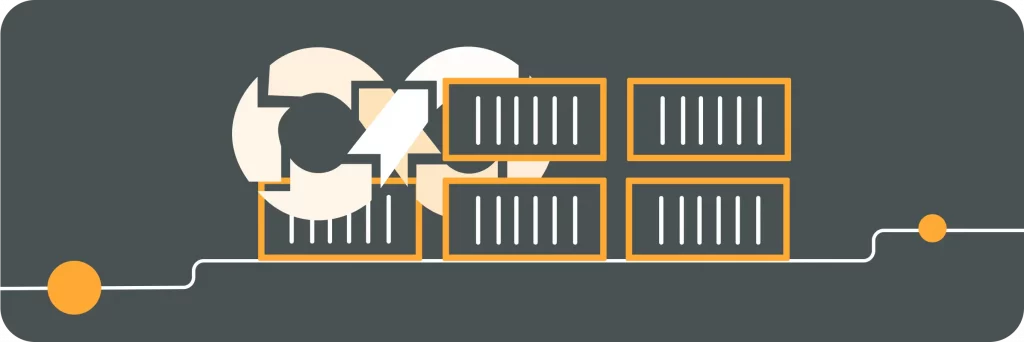Microservices have revolutionized the way we develop and deploy software applications. By breaking down large monolithic applications into smaller, independent services, microservices enable scalability, agility, and faster time to market. However, when it comes to deploying and managing microservices, two popular platforms often come to mind: Kubernetes and Docker.
Understanding Microservices
Before delving into the differences between Kubernetes and Docker, it’s important to have a clear understanding of microservices. In simple terms, microservices are a software architecture pattern where an application is developed as a collection of small, loosely coupled services, each running in its own process and communicating with lightweight mechanisms such as HTTP. This approach allows each service to be developed, deployed, and scaled independently, enhancing modularity and flexibility.
Definition and Importance of Microservices
Microservices are self-contained units of functionality that can be developed and deployed independently. Each microservice focuses on a specific business capability and can be developed using different programming languages and technologies. This flexibility allows organizations to adopt a polyglot approach to development, using the most suitable tools for each service. By breaking down large applications into smaller services, organizations can improve maintainability, scalability, and resilience.
When it comes to the definition of microservices, it’s important to note that they are not just about breaking down applications into smaller components. They also emphasize the idea of loose coupling, which means that each service should be able to evolve independently without affecting the others. This decoupling is achieved through lightweight communication mechanisms, such as HTTP-based APIs or message queues, which allow services to interact with each other in a flexible and scalable manner.
The importance of microservices lies in their ability to enable rapid application development and deployment. With smaller services, individual teams can work independently on different components, allowing for faster time to market and greater agility. Microservices also facilitate continuous delivery, as each service can undergo its own testing and deployment processes without affecting the entire application. This modular approach enhances scalability, as individual services can be replicated or scaled independently to meet changing demands.
The Role of Microservices in Modern Software Development
Microservices have become increasingly popular in modern software development due to their numerous benefits. With traditional monolithic applications, making a single change often requires redeploying the entire application. This can be time-consuming and error-prone. Microservices, on the other hand, allow organizations to make changes to individual services without affecting others. This decoupling of services enables faster development cycles and reduces the risk of unintended side effects.
Moreover, microservices promote a culture of autonomy and ownership within development teams. Each team is responsible for a specific microservice, giving them the freedom to make decisions and implement changes without having to coordinate with other teams. This not only speeds up development but also fosters innovation and creativity.
Organizational Scalability
Microservices also facilitate organizational scalability. With monolithic applications, multiple teams often have to work on the same codebase, leading to coordination challenges and slower development cycles. In contrast, microservices enable each team to work on a separate service, promoting parallel development and increasing overall productivity. This distributed approach allows organizations to scale their development efforts by adding more teams and services as needed, without the need for complex coordination and communication.
Furthermore, microservices align well with modern software development practices such as DevOps and agile methodologies. The modular nature of microservices enables teams to adopt continuous integration and continuous deployment (CI/CD) practices, where changes can be tested and deployed quickly and frequently. This iterative approach to development allows organizations to respond rapidly to user feedback and market demands, ensuring that their applications remain competitive and up-to-date.
In conclusion, microservices offer a powerful architectural pattern that enables organizations to develop, deploy, and scale applications more effectively. By breaking down large applications into smaller, independent services, organizations can achieve greater flexibility, maintainability, and scalability. With the ability to work autonomously on individual services, development teams can deliver software faster and with higher quality. As the demand for faster innovation and agility continues to grow, microservices have become a key enabler for modern software development.
Introduction to Docker
Docker is an open-source platform that automates the deployment of applications inside lightweight, portable containers. Containers provide an isolated environment for applications to run, ensuring consistency across different environments. This allows developers to package an application and its dependencies into a single container, eliminating the need for complex setup and configuration.
Docker: An Overview
The solution provides a containerization platform that allows developers to build, ship, and run applications anywhere. Containers are lightweight and portable, making it easy to deploy applications consistently across different environments, from development to production. Docker containers are isolated from each other, providing a secure and predictable environment for applications to run.
Key Features and Benefits of Docker
Docker offers several key features and benefits that make it a popular choice for deploying microservices:
- Isolation: Docker containers provide a way to isolate applications and their dependencies, ensuring that they run in a consistent environment without interfering with other processes.
- Portability: Docker containers can run on any system that supports Docker, making it easy to deploy applications across different environments, including local development machines, on-premises servers, and cloud platforms.
- Efficiency: Docker utilizes containerization, which results in lightweight containers that share the host system’s kernel, reducing resource overhead and optimizing resource utilization.
- Flexibility: Docker supports a wide range of programming languages and technology stacks, allowing developers to use their preferred tools and frameworks for building microservices.
Introduction to Kubernetes
Kubernetes, often abbreviated as K8s, is an open-source container orchestration platform that automates the deployment, scaling, and management of containerized applications. It provides a robust framework for managing clusters of containers across multiple nodes, ensuring high availability and scalability.
Understanding Kubernetes
Kubernetes provides a declarative approach to managing containerized applications. It abstracts away the underlying infrastructure and provides a set of APIs that allow developers and operators to define the desired state of their applications, and Kubernetes takes care of ensuring that the actual state matches the desired state.
Key Features and Benefits of Kubernetes
Kubernetes offers several key features and benefits for deploying microservices:
- Scalability: Kubernetes enables horizontal scaling of containers, allowing applications to handle increased loads by automatically provisioning additional instances of the containers.
- High Availability: Kubernetes provides fault tolerance and resiliency by automatically restarting failed containers and distributing them across available resources.
- Load Balancing: Kubernetes includes built-in load balancing mechanisms that distribute incoming traffic evenly across multiple instances of a service.
- Rolling Updates and Rollbacks: Kubernetes allows for seamless updates and rollbacks of applications by gradually replacing old containers with new versions, ensuring zero downtime.
Docker vs Kubernetes: A Comparative Analysis
Both Docker and Kubernetes play crucial roles in the deployment and management of microservices. Let’s take a closer look at the differences between these two platforms.
The Architecture: Docker vs Kubernetes
Docker is primarily a containerization platform, providing a consistent environment for running applications. It focuses on packaging and delivering applications inside containers. On the other hand, Kubernetes is an orchestration platform that manages the deployment, scaling, and management of containers. It provides advanced features for managing clusters of containers across multiple nodes.
In summary, Docker is responsible for creating and running containers, while Kubernetes is responsible for orchestrating and managing those containers.
Scalability: Docker vs Kubernetes
When it comes to scalability, Docker and Kubernetes offer different approaches. Docker allows applications to be scaled by running multiple instances of containers on a single host or across multiple hosts. This horizontal scaling approach works well for small-scale deployments where a single host can handle the load.
Kubernetes, on the other hand, excels at managing large-scale deployments. It enables horizontal scaling by automatically provisioning additional instances of containers across multiple nodes in a cluster. Kubernetes also ensures load distribution and fault tolerance, making it suitable for highly available and scalable deployments.
Deployment Process: Docker vs Kubernetes
The deployment process differs between Docker and Kubernetes. With Docker, developers can build and package applications into containers, which are then deployed to a target environment. Docker provides tools and commands for managing containers, such as Docker Compose for defining multi-container applications.
Kubernetes, on the other hand, takes a different approach. Developers define the desired state of their applications using Kubernetes manifests, which describe the desired configuration and desired number of replicas for each service. Kubernetes then ensures that the actual state matches the desired state, automatically provisioning and managing containers to achieve the desired configuration.
Choosing Between Docker and Kubernetes
The choice between Docker and Kubernetes depends on the specific requirements and use cases of your microservices deployment. Let’s explore when each platform is most suitable.
When to Use Docker
Docker is an excellent choice for smaller-scale deployments or when the primary focus is containerization and ensuring consistent application environments. If you want to package applications into containers and deploy them easily across different environments, Docker provides a simple and efficient solution.
Additionally, if you have existing services or applications already running in Docker containers and need a lightweight orchestration solution, Docker Swarm (Docker’s built-in orchestration feature) can be a suitable option for managing container deployments.
When to Use Kubernetes
Kubernetes shines in larger-scale deployments where high availability, scalability, and advanced management features are required. If you anticipate needing to scale your services to accommodate increased traffic or have complex deployment requirements, Kubernetes provides the necessary tooling and framework.
In addition, if you have a microservices architecture with multiple interdependent services or a need for complex deployment strategies, such as rolling updates or canary deployments, Kubernetes’s advanced features and declarative approach make it an excellent choice.
In conclusion, both Docker and Kubernetes are powerful tools for deploying microservices. By understanding the differences between the two platforms and assessing your specific requirements, you can make an informed decision on which platform is best suited for your needs.




